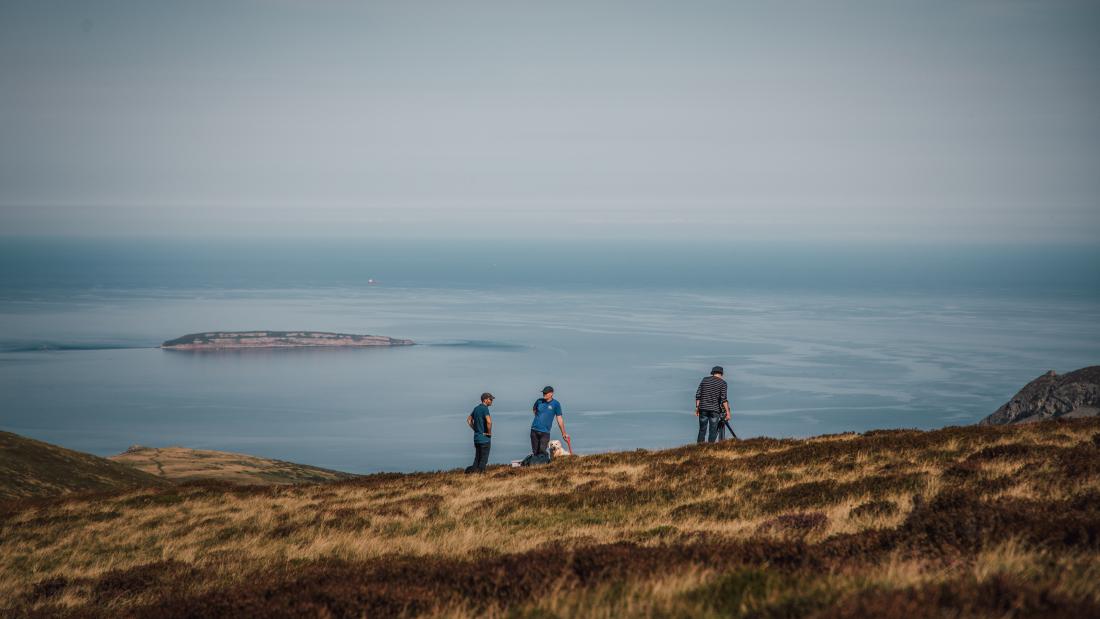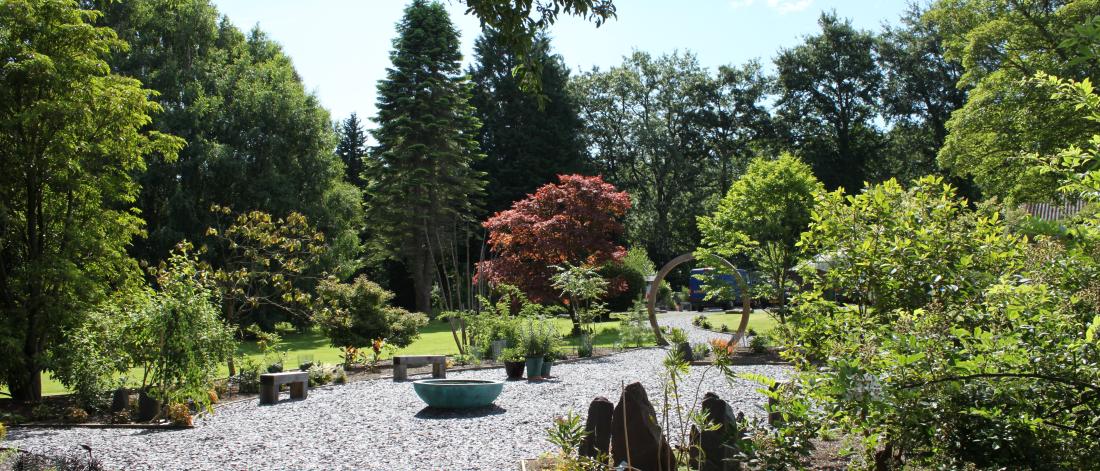Gardd Fotaneg Treborth
Mae Gardd Fotaneg Treborth yn ymestyn dros ardal o 18 hectar ar lannau Afon Menai ac wedi bod ym mherchnogaeth Prifysgol Bangor ers 1960. Er ei bod ar agor yn rhad ac am ddim i'r cyhoedd, defnyddir Treborth ar gyfer rhai o weithgareddau ymchwil ac addysgu.
Mae Treborth yn gartref i saith tŷ gwydr, yn cynnwys tŷ trofannol tirlunedig mawr, labordy gwreiddiau tanddaearol mwyaf Ewrop (y rhisotron), labordy addysgu, gwelyau gardd ffurfiol, gardd greigiau, arborëtwm a chasgliad cadwraeth. Mae Llwybr Arfordir Cymru yn rhedeg drwy'r Ardd ac yn denu dros 100,000 o ymwelwyr y flwyddyn yn ogystal ag ymweliadau cyson gan ysgolion lleol a grwpiau diddordeb arbennig.
Gwylio - Gardd Fotaneg Treborth
Canolfan Amgylchedd Cymru
Mae Canolfan Amgylchedd Cymru (CAC) yn fenter bartneriaeth rhwng Canolfan Ecoleg a Hydroleg y Cyngor Ymchwil Amgylchedd Naturiol (CEH) a Phrifysgol Bangor. Mae CAC yn darparu cyfleuster ymchwil modern ar gyfer cymysgedd o wyddonwyr o ddisgyblaethau atmosffer, tir, dŵr croyw a morol i gyflwyno gwyddoniaeth integredig mewn adeilad eiconig gwyrdd sy'n adlewyrchu ein ffocws ymchwil ar faterion amgylcheddol.
Ffurfiwyd y Grŵp Ecosystemau ac Amgylchedd (GEA) i ddwyn ynghyd arbenigedd gwyddonol o fewn a thu allan i'r brifysgol, yn y meysydd carbon, maetholion a llif llygryddion o fewn ac rhwng ecosystemau. Rydym yn gweithredu cyfres o labordai ar ail lawr adeilad CAC. Mae'r gyfres hon yn cynnwys labordy isotopau ymbelydrol a sefydlog, labordy pathogen Categori 2, ystafell feicrosgop dywyll, labordai paratoi samplau a labordy offer dadansoddol pwrpasol. O fewn y labordai mae gennym yr ystod ganlynol o offer a chyfleusterau dadansoddol:
- Dadansoddwr Ffiber Ankom
- Atlas Suntest CPS
- Ffwrn Aerglos
- Cabinetau Diogelwch Biolegol
- Allgyrchyddion
- Microscopau Llychwedd a Binocwlar
- Spectrofotomedr Llychwedd
- Cabinetau Tyfu
- IDeorydd a Phopty
- Dadansoddwr CN Leco
- Cyfrifiannell Golau Micro Beta
- Respiromedr Micro Oxymax
- Ffwrnais Muffle
- Respiromedr (Dadansoddwr CO2)
- Cylchwr Seward Stomacher 400
- Ysgwyddwyr
- Darllenwr Amlblat Tecan Infinite 200 Pro
- Dadansoddwr Elfennol TOC Tnb
- Dadansoddwr Elfennol TXRF
- Varian GC FID ECD
- Varian GC MS
- Varian HPLC
- Cyfrifiannell Sgleiniad Wallac
Mae offer ychwanegol sy'n ymwneud â phrosesu pren a chynhyrchu cyfansoddion sy'n seiliedig ar ffibr planhigion ar gael yn y Ganolfan FioGyfansoddion. Mae gan staff hefyd fynediad at ystod o offer newydd ar gyfer ymchwil gwyddor planhigion ac amgylcheddol mewn Gwyddorau Biolegol a Chemeg. Mae'r rhain yn cynnwys cyfleusterau ar gyfer genomeg, proteomeg a metabolomeg, microsgopeg a delweddu, profion celloedd a gardd fotaneg.
Cyfleusterau Desg
Sefydlwyd y Ganolfan Cadwraeth sy'n Seiliedig ar Dystiolaeth (CEBC) yn 2003 gyda'r nod o gefnogi gwneud penderfyniadau mewn cadwraeth a rheolaeth amgylcheddol. Mae CEBC yn hyrwyddo ymarfer sy'n seiliedig ar dystiolaeth drwy gynhyrchu a lledaenu adolygiadau systematig ar effeithiolrwydd ymyriadau rheoli a pholisi ac ar effaith gweithgareddau dynol ar yr amgylchedd naturiol.
Safleoedd arbrofion hirdymor
Mae gennym nifer o safleoedd sy'n cael eu monitro yn y tymor hir ac yn darparu cyfleoedd ar gyfer ymchwil a gwaith prosiect. Mwy o wybodaeth.


